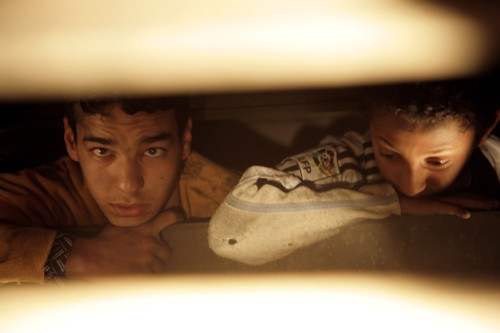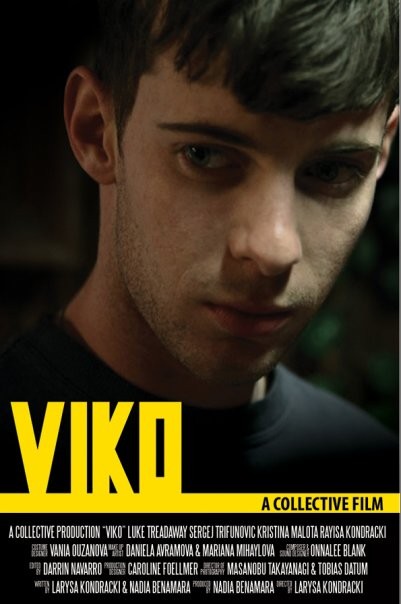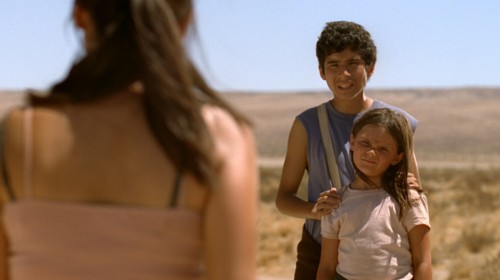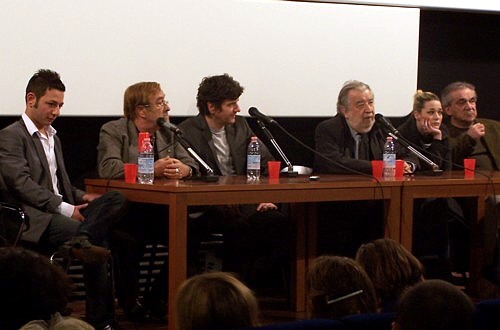There were five films in the short-films section of the Bolgona Human Rights Night film festival yesterday. I am the President of the Jury this year for the short films.
Overall I liked all five of them. We still have another seven films to see so it is too early to speak of which of them is the best film, but already I can see how subjective it can be to decide about the best film or the best actor or actress, and in the end why some persons feel so strongly about the awards and film festivals.
The first film was Mofetas (Director Inés Enciso, Spain-Morocco 2008, 10 minutes). The word "Mofetas" means skunks, those furry animals that use bad odour as their defence, and is what the police in Tangiers calls the children trying to illegaly cross into Europe, hanging under the trucks.


The films heroes are two Moroccan mofetas (Mostafa Abdeslam and Mohamed Maltof), trying their luck once again, hiding under the belly of the truck, waiting for the crossing to Spain, while waiting, sharing their dreams. If the reality of their life is poor and dirty, their dreams are in technicolour, complete with blondes and chocolates.
Newspapers in Europe regularly talk about immigrants trying to sneak in, hanging on to the trucks or boats, hiding in the freezer cells, some times dying, some times making it but then sent back. They are just numbers, illegals without faces or humanity. The film gives faces, names, dreams and humanity to them.
The second film was Viko (Director Larjsa Kondracki, Canada 2008, 17 minutes). It is the story of teenager Viko (Luke Treadaway) in ex-Jugoslavia, hoping to escape from poverty and be able to go to Berlin or London with his girl. His borther, hard and cussing, offers Viko to help in his illegal work. Viko does not know that he is getting into trafficking of Ukrainian girls for prostitution. Initially shocked and repulsed by the tragedy of girls they are violating, Viko finally reacts with violence himself, becoming hard and cussing like his brother.


The film is about a young boy reaching adulthood, losing his innocence and turning into a violent exploiter for his own survival. I think that we all want our villains to be very different from us, without humanity, so that we can hate them and feel relieved that we are not like them. The film shows that violent men who exploit poverty of young women to push them into prostitution were persons like others, circumstances and their work turn them into monsters.
There is a part of the film that is really shocking with rape and violence, I wanted to close my eyes and close my ears. It is not for the faint hearted or for children.
It is a film that makes you reflect about the scantily clad girls you can see standing by the side of the road, smiling provocatively, hoping to coax you to a room and think about how they got there and the kind of racket that exists all around to make that to happen.
The third film was Una Vida Mejor (director Luis Fernandez Reneo, Spain, 2008, 13 minutes) about three children crossing over from Mexico to America through the Arizona desert. The children get separated from their handler and the group during an attack by bandits, then alone without water they try to cross the desert. One of them doesn't make it.


Some parts of the film are very well done like the last part where the mother receives the letter from her children. In other parts, I found it is less real and more artificial, in the sense everyone and everything is too nice and beautiful. For me it lacked grit of a documentary and was more of a film.
The fourth film was About The Shoes (By Rozalié Kohutovà, Czech republic, 2007, 13 minutes) about a Rom (gypsy) slum near Slovakia. The film in black and white is told by a young woman-volunteer-teacher who wants to bring the gypsy children to school, and about the girl without shoes, who can not come to the school.
The poverty and the squallor of the gypsy campment is caught well. However, the film seems to be a outsiders look at gypsy world, the otherness of the gypsies is accentuated. It lacks their point of view.
The choice of stark images in black and white also help to create views that reminded me of documentaries about concentration camps under Nazis, that again seemed to accentuate their otherness, a feeling that it is not about us normal persons, it is about them, and they are different from us. I am not sure if director did want to convey this.
The fifth and the last film yesterday was Portuale (director Gregor Ferretti, Italy 2008, 4 minutes) about Lucio, a young boy who had died during his first day of work at the port in Ravenna. The film, a musical video, sung by Gregor (Lucio is dead, crushed like a cat), has beautiful visuals and shows the different stages of Lucio growing up, his friends, his dreams and then his body at the port, covered by a sheet.
Use of beautiful colours, nice locales and the contrasting words are pleasant even if you may have seen similar songs already on Music TV, it doesn't add anything to the understanding about what happened and why. Lack of security at work places, the theme of the film, remains more of an accident.
Overall the first day of short films was satisfying and much better than what I had expected. Viko was especially shocking and Mofetas made me reflect more, but each film gave me something to remember, and something to reflect upon. I think that is the purpose of documentary films, to make you reflect and to understand.
As I had walked in the theatre, I saw bits of a press conference of a new Italian film coming out today, Amici del Bar Margherita, shot in Bologna. There were some of the Italian stars like Pierpaolo Zizzi and the popular Italian singer, Lucio Dalla. (In the picture below with film director Pupi Avati and other actors).

I am looking forward to the second round of short films today that is going to have films from Italy, USA, Iran and India. I am also looking forward to tomorrow to watching Parvez Sharma's A Jihad for Love and Ari Folman's Waltz with Bashir.
***






Awesome! great post!
ReplyDeleteWish i could see some of these films.